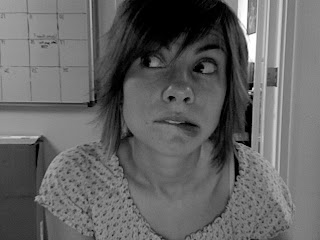
Title:
The Alexandria QuartetAuthor:
Lawrence DurrellJudgin' the Book by its Cover: The photograph on this cover is strangely appropriate, although it depicts nothing from the novel. The image of the European women as tourists in a foreign land is a pretty apt depiction of the characters' relationship to their environment.
Thoughts: Whew. I feel like I need to chug some Gatorade and do some serious stretching after this marathon. (Incidentally, today is the New York marathon... but hey, any old jerk can run 26.2 miles. It takes a serious person to read an 887-page book). First of all, the Modern Library folks pulled a fast one!
The Alexandria Quartet is actually four novels bundled together, so even though the characters overlap and the setting remains the same through most of the work, it's technically not
a novel, in my book. Hrmph.
Annnnyyyyhoozle... the book is, like I said, four separate novels published in one volume. The first story,
Justine, is written from the perspective of one L.G. Darley, a British writer who is swept into an affair with a married Alexandrian socialite. Darley, a pretty obvious stand-in for Durrell himself, does a rigorous postmortem on the complicated and stormy relationship with Justine, a calculating nymphomaniac married to Nessim, one of the city's prominent bankers. I really struggled with this storyline. The prose consisted mainly of dated psychosexual analysis and broad observations about groups of people. However, the second book,
Balthazar, provided a new (and far more interesting) perspective on the events of the first. In this novel, Darley, now living on a Greek island, receives a letter from Balthazar, a scholar of the Kabbalah and a doctor, that pulls the rug out from under Darley's understanding of the affair. The third volume,
Mountolive, pulls back and offers a history of Nessim's family that lays the foundation for understanding the social and political climate in Alexandria. Finally,
Clea, the fourth, brings a wiser, more mature Darley back to the city as the second world war tightens its grip on the Mediterranean.
The strength of the quartet is its wealth of characters. Durrell manages to create a world in which all the characters are multidimensional and undergo personal transformations throughout the course of the work. The weakness of the quartet, on the other hand, is its failure to create a real world for the characters to live in. Alexandria is seen only through the eyes of the British colonial worldview, and while the descriptions of the geography are quite beautiful at times, the residents of the city are described only as dark and animal-like others. I've been constantly struck throughout this project by the off-putting racism of many of these authors, and this is one of the worst examples. Nearly every description of a native Alexandrian includes a reference to the blackness or darkness of their skin, and they are not given the importance or roundness of the main characters. It's as though the entirety of Alexandria is a playground for the Europeans or the Coptic and Jewish minorities, and everyone else outside of these groups is a part of the scenery that isn't worth investigation. In this respect, I didn't find that Durrell brought Alexandria to life, which is too bad. Moreover, the squishy philosophizing in the book was nearly unbearable to read, and for me it was at its most interesting when it stayed away from that. Overall I enjoyed the book, but given the immense chunk of time I invested in it trying to get interested, I'm not sure I would do it again.






